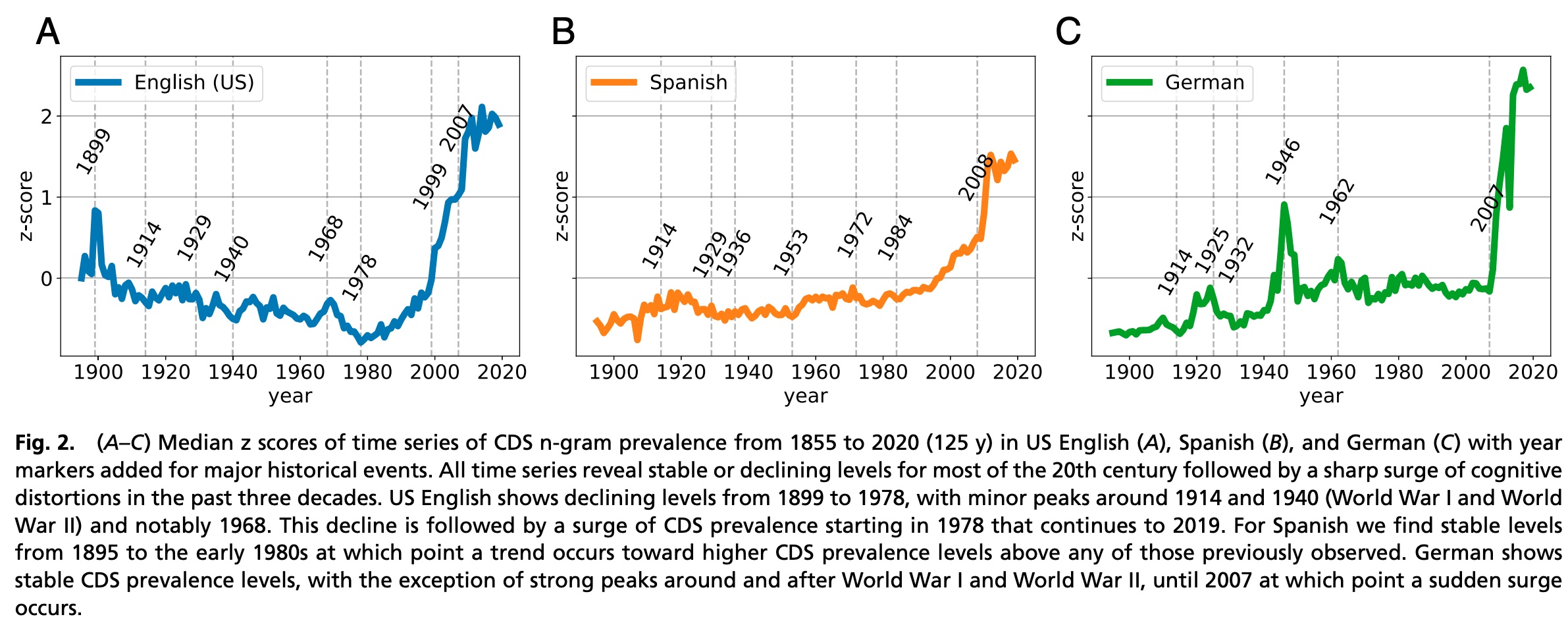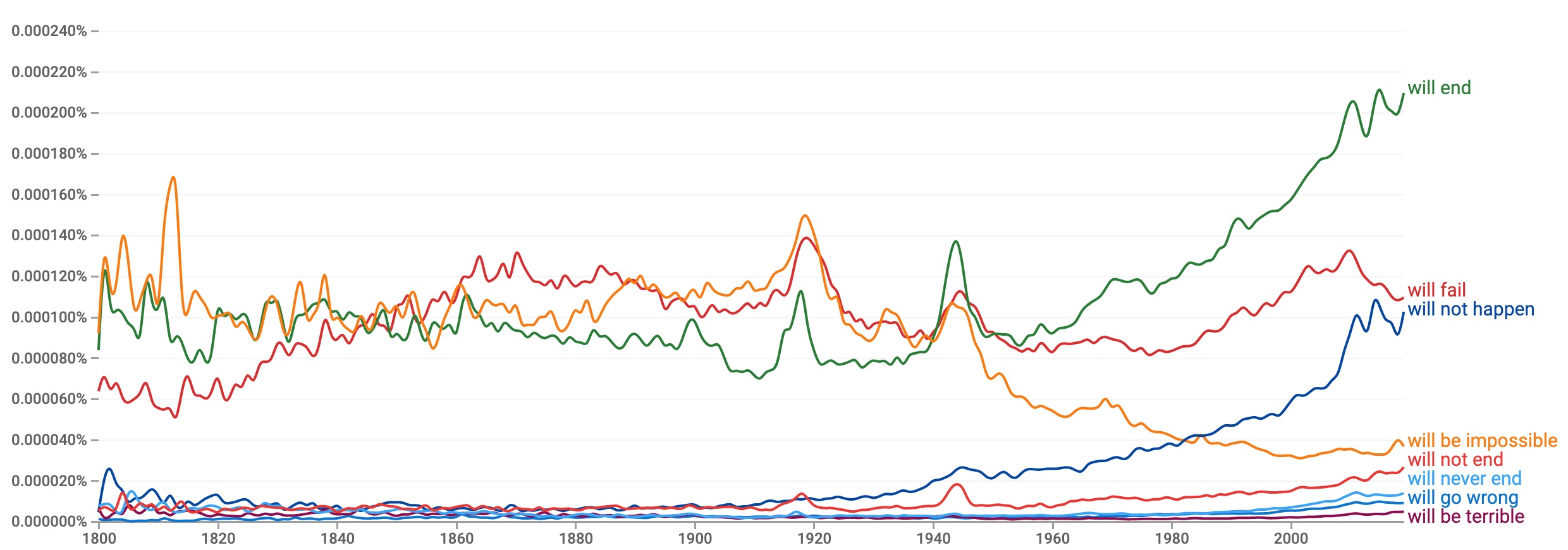August 06, 2021Global CatastrophizingDo you think the world is much darker than it used to be? If so, you are not alone. I have always assumed that a feeling of psychological decline is just a side-effect of getting older. But a paper by Bollen, et al., out in PNAS today suggests that a darker outlook in recent years might not be specific to any of us individually. By analyzing trends in published text in the Google ngrams corpus, researchers from Indiana University and Wageningen have discovered that across English, Spanish and German, text published in the world shows sudden changes in language use over time that are indicative of cognitive distortions and depression, coinciding with major wars or times of social upheaval.  The chart above is from Bollen's paper, and it counts something very simple. For every year, it counts how many times a particular set of short phrases appear in the printed books published in that year. The annual counts come from Google's Books ngram corpus - derived from scans of published books - and the 241 phrases counted are word sequences chosen by a panel of cognitive behavioral therapy specialists as markers for cognitive distortion schemata (CDS). That is, they are phrases that would suggest systematic errors in thinking that are correlated with mental health issues that are treated by psychologists. For example, one of the 241 counted phrases is "you always," because those words often indicate overgeneralization such as in the sentences "You always say no," or "You always win." The bigram "everyone knows" indicates mind-reading, because it reveals that the speaker has a belief that they know what other people are thinking. The trigram "will never end" indicates catastrophizing, an exaggerated view of negative events. In total the panel of experts cataloged each of the 241 selected phrases, as a marker for a dozen specific cognitive distortions. These cognitive distortions are correlated with depression, so it is interesting to ask whether large-scale trends in the usage of these phrases reveals mass changes in psychology over time. The chart suggests that it might. It seems to reveal suffering in Germany coinciding with World Wars I and II, and trauma in the English-speaking world at the Spanish-American War, Vietnam war protests, and 9/11. Strikingly and worryingly, all the languages show a dramatic increase in cognitively distorted use of language since 2007. If you believe the linguistic tea leaves, our collective state of mind seems to have taken an extraordinary turn for the worse in the last decade — globally. The paper is an example of a use of the Google Books ngrams corpus. This is a pretty great resource that catalogs language use by counting words and ngrams in about 4% of all published text, by year, and it means that you can easily look further into the data yourself. The authors provide their list of phrases, so you can examine the trends by individual category and phrase. Here are the top phrases for catastrophizing in English:  Explore and modify the query yourself here. You can see spikes in certain phrases corresponding to WWI and WWII, and the upwelling, in recent decades, of expressions of the idea that a variety of things "will end" and "will not happen". It is when the 241 phrases are added together, when we see dramatic recent spikes that are reminiscent of the climate change hockey stick plot by Mann, Bradley and Hughes. Do you agree with the authors that these changes in word usage are meaningful? Have we been experiencing a catastrophic worldwide decline in psychological health since 2007? Or is this just an example in which the authors themselves are catastrophizing, looking at data in a way that interprets events in the world as much worse than they actually are? Previous musings on society-wide catastrophizing here. Comments
Post a comment
|
| Copyright 2021 © David Bau. All Rights Reserved. |